Transforming Discipleship

Multiplication Through the Generations
The conundrum of disciplemaking is this: How do we make disciples who reproduce?
- The expectation of making reproducing disciples normal or regular is not even in the field of vision in most churches. What is your sense of the obstacles to making reproducing disciples?
- One of those obstacles identified here is the fixation on the Paul-Timothy model that has focused on a one-on-one relationship. What is your analysis of the limitations of the one-on-one model?
- To shift from the one-on-one model, the hierarchy or positional authority is not necessary for modeling to take place. Are there other biblical paradigms for a more egalitarian, peer mentoring approach to making disciples?
- There are differences in dynamics between the Paul-Timothy, one-to-one style of relationship compared with what you can experience in a triad or quad (preferably groups of 3-4 people of the same gender)? Why is it that a MicroGroup has a greater likelihood of multiplying than the one-to-one relationship?
- However, there are some situations where meeting one-to-one are needed. That's the difference between a mentor and a coach. What are some of the settings where the one-to-one relationship would actually be more advantageous?
- Definitions matter. How would you describe the difference between a mentoring relationship compared to a discipling relationship?
In a MicroGroup, the leader becomes like a facilitator and coach ("guide on the side") instead of a teacher ("sage on the stage").
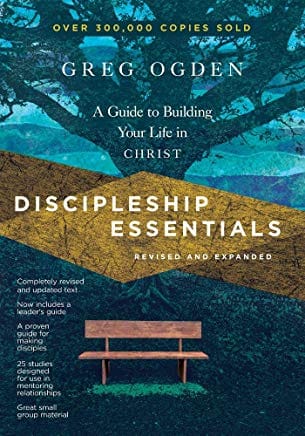
Leaders are defined as those who pray about people to invite into a MicroGroup. See the "Leader's Guide" in the back of Discipleship Essentials that suggests processes and interactions with potential people who want to become more like Christ by participating in a MicroGroup setting.
Mentor or Coach?
A MicroGroup has elements of both mentoring and life coaching, with a Christian focus on being led (surrendered and coached) by the power of the Holy Spirit to create an atmosphere where people grow spiritually in a safe environment. A MicroGroup leader does not lead by their gifting (anointing) or by their personality or by their education/knowledge. We can get in the way of the Holy Spirit in the lives of others if we lead by our own power.
- The ground rules are clear.
- The accountability is focused.
- The roadmap is a viable destination.
- The expectations of a timeline for multiplication are set.
- A game plan for winning is prepared.
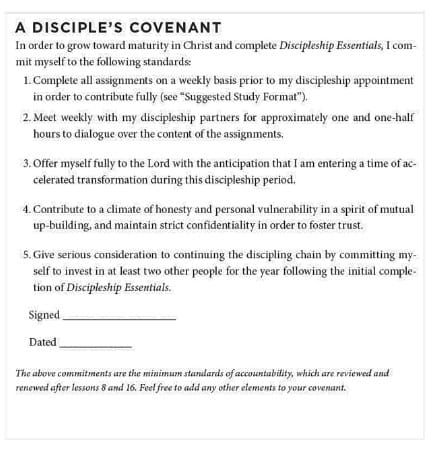
This covenant (promise) is a transformational tool, different from a contract (give-to-get) transactional agreement. Between you and the Lord God Almighty, you sign and date it to proceed. In other words, let people know what they are getting into, what time commitments are needed, and how to proceed in preparation.
The primary difference between a life coach and a mentor lies in their role, approach, and relationship focus. MicroGroup leaders are a mix of both as the Spirit of God leads conversations and interactions for His glory and our good.
Role and Focus
- Coach: A life coach is often trained to help you set and achieve specific goals, overcome obstacles, and create a plan for personal growth. Their focus is on the present and future.
- Mentor: A mentor is typically someone with experience in a particular field who provides guidance, advice, and wisdom based on their own journey. Their focus is often broader, including career and life development over time.
Relationship Structure
- Life Coach: Usually a formal, time-bound relationship with regular sessions and accountability.
- Mentor: Often an informal, ongoing relationship that evolves naturally and may not have structured meetings.
Training and Expertise
- Life Coach: May be certified or trained in coaching techniques (though not always required).
- Mentor: Not required to have formal training—relies on personal experience and insight.
Guidance Style
- Life Coach: Helps you discover your own answers through questioning and reflection. They don’t usually give direct advice.
- Mentor: Often gives advice, shares stories, and suggests what worked for them in similar situations.
|
Aspect |
Life
Coach |
Mentor |
|
Focus |
Goals, growth, present/future |
Development, guidance, long-term |
|
Method |
Structured, reflective, client-led |
Informal, advice-based,
experience-led |
|
Relation-ship |
Professional and time-bound |
Personal and ongoing |
|
Role |
Guide and facilitator |
Advisor and role model |
Define Christian
While there is a popular idea that Christian means "little Christ," this is not supported by linguistic analysis. Here is a breakdown of the etymology and meaning of the term Christian:
- Origin: The term "Christian" comes from the Greek word Christianos.
- Meaning: Christianos means "follower of Christ."
- Derivation: It is derived from Christos (Christ), meaning "anointed one."
- Suffix: The suffix -ianos denotes adherence to or belonging to someone.
- Historical context: The disciples were first called Christians in Antioch, likely by non-believers, as a term to describe those who were centered on Christ in their behavior and speech. The term may have even been used as a mockery or insult initially.
Therefore, while the concept of being "Christ-like" is central to Christian belief, the word Christian itself does not literally mean "little Christ." Instead, it signifies a follower of Christ and is linked to the concept of being "anointed" or devoted to Christ.
There is no nominal "Christian in name only," as a label, a checkbox, or a religion. Being a Christian, saved and rescued, is a person whose belief is revealed by actions. "By their fruit (behavior) you shall know them." We are called and chosen to be disciplemakers since Jesus has given us all power to do so.
This is The Great Commission
Matthew 28:18-20
Problem-Solving Discussion
The greatest resistance you will face will be the inertia of multiplication.
To be successful we would want at least 2/3rds of our MicroGroup members to take the initiative to form their own groups following the completion of Discipleship Essentials.
- So here is the challenge: What are the means you can employ to instill in your group members the internalized commitment to discipling others?
- What are the ways that you might go about gaining ownership to the commitment to be a multiplier? Brainstorm this together.
Multiplication throughout history continues to occur all over the world. Multiplying disciples throughout the world continues to be effective. In some ways, like MicroGroups, these methods tend to be make disciples who make disciples more often than other strategies. Observe what works in your own circumstances and church.
The expectations, relationship-building experiences, and real transformational accountability encourage others to become more like Jesus Christ, not by trying harder but by training in a safe, intentional environment. That's the definition of discipleship that multiplies.


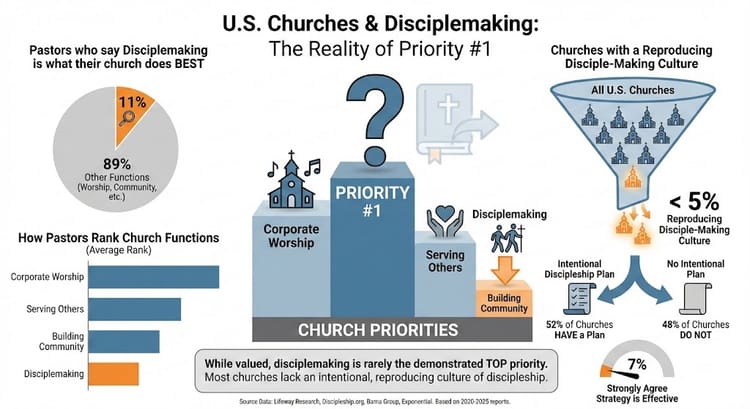

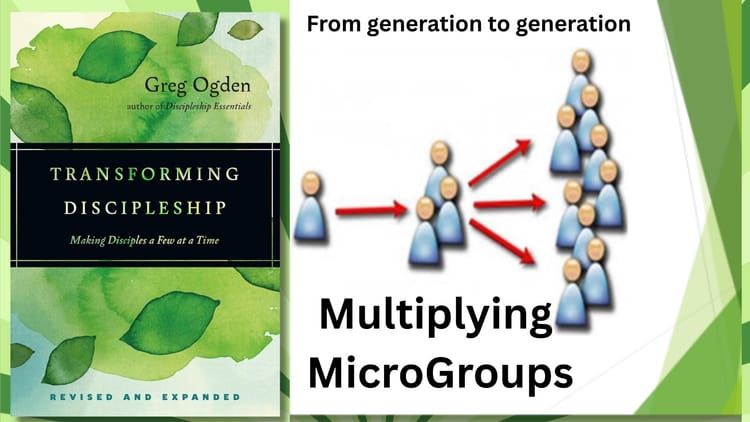
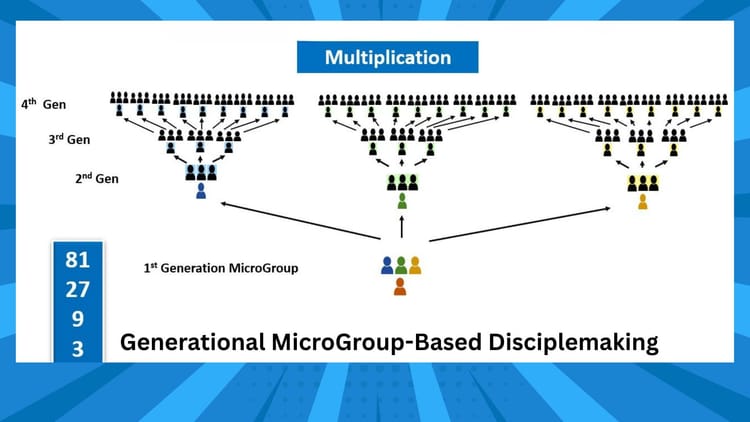

Member discussion